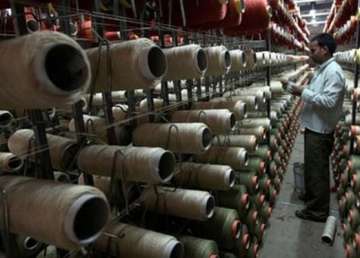New Delhi: United Nations Economic and Social Commission for the Asia and the Pacific (UN ESCAP) expects a stronger growth momentum of 5.5 per cent for India in 2014-15 on account of economic expansion, likely uptick in exports and a stable government at the Centre.
The Indian economy had registered a growth of 4.9 per cent in fiscal year ending 2014, up from 4.5 per cent in the previous fiscal, but far below the 9.5 per cent pace three years before the global financial crisis of 2008.
"The economy is expected to enjoy stronger growth momentum of 5.5 per cent in the fiscal year 2014, underpinned by solid expansion in the industrial and services sectors. Higher growth in the developed countries and the weaker local currency would support exports," said the UN ESCAP report on Economic and Social Survey of Asia and the Pacific-2014 released here on Tuesday.
The formation of a new government in May also provides impetus to economic reforms, said the report.
However, it expects the inflation to remain at an elevated level of 8 per cent for the year.
"India's growth would be better than 5.5 per cent in 2014-15. I think 5.5-6 per cent would be the rate of growth the Indian economy can deliver this year. The new government has the focus on economic growth and is engaging with investors," said Nagesh Kumar, Head, ESCAP South and South-West Asia.
However, he said inflation has been a big concern and it has been a big factor constraining growth of India. But, it has shown signs of moderation. This year the inflation is expected to be at 8 per cent, Kumar said.
"High food inflation hit the poor harder, as they spend proportionally more on food purchases, especially cereals and vegetables. Food items account for close to half of the consumer price index in India," the report said.
On Asia Pacific, the report said developing countries in the region are forecast to grow at an average of 5.8 per cent in 2014, up from 5.6 per cent last year.
"Current challenge is how to rebalance. But, India is at the advantage because of bullish domestic demand. India can grow robustly. India has the luxury of supply and demand abundance," said Alok Sheel, Secretary, Economic Advisory Council to the Prime Minister.
On growing inequality challenges and sustainable Asia- Pacific growth, the report said that high income inequality seriously undermines the economic and social achievements within the region.
A key challenge in many Asia-Pacific developing countries is to address gender inequality inhibiting full participation by women in public life, it said.
"Allowing women and men to work equally in economic activities with equal pay, and realize their full potential, is integral to a nation's economic resilience and productivity," said the survey.
Latest Business News
